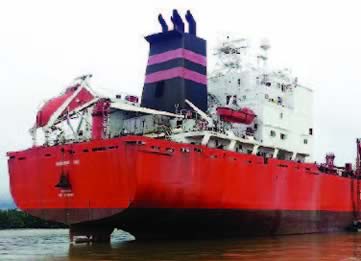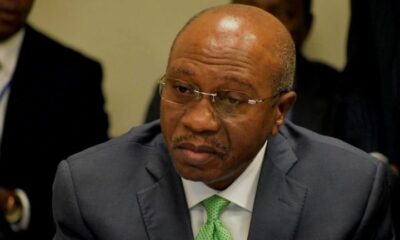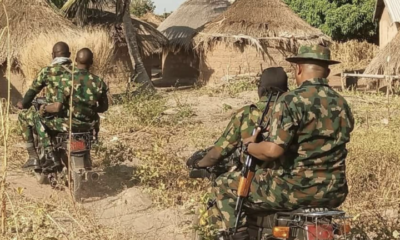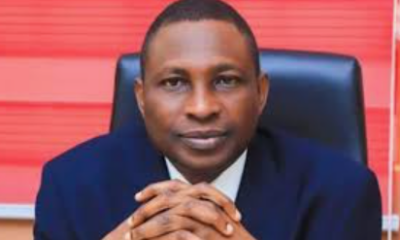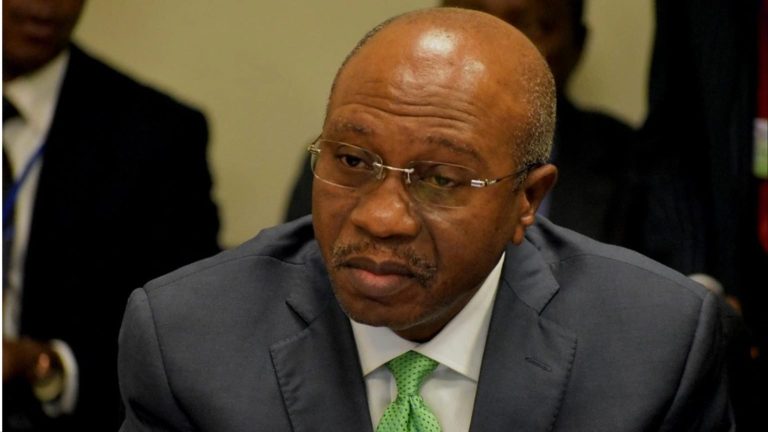Oil marketers report that the volume of “Premium Motor Spirit,” commonly known as petrol, produced by the “Dangote Petroleum Refinery” is insufficient to meet domestic demand.
Due to this shortfall, dealers plan to import petrol to supplement the supply from the $20bn Lekki-based plant, as stated by the marketers on Tuesday.
They, in agreement with the “Trade Union Congress,” called for increased production at the refinery, as some allege that the plant is producing approximately 10 million litres of petrol daily, contrary to the initial commitment of 25 million litres.
When the refinery began releasing “PMS” to the domestic market on September 15, “Nigerian National Petroleum Company Limited” announced it would load 16.8 million litres of petrol from the Dangote refinery.
This volume was notably less than the 25 million litres that the refinery previously committed to releasing daily to the national oil company.
On September 3, 2024, the “Nigerian Midstream and Downstream Petroleum Regulatory Authority” (NMDPRA) stated the refinery would begin supplying 25 million litres of petrol daily to the Nigerian market starting from September.
The NMDPRA further noted that the supply would increase to 30 million litres from September. It added in a brief statement that it had coordinated with “NNPC” on local crude supply to the refinery.
“At the NMDPRA headquarters in Abuja, NNPC reached an agreement to commence crude oil sale and supply to Dangote refinery in local currency.
“The refinery is now poised to supply an initial 25 million litres of PMS into the domestic market this September. And will subsequently increase this amount to 30 million litres daily from October 2024,” the NMDPRA stated on its X page at the time.
However, on Tuesday, oil marketers indicated that the multi-billion dollar refinery was not producing up to the expected volume, aligning with the TUC’s call for the plant to increase production or for dealers to resort to “PMS” importation.
At a recent press briefing in Abuja, “Trade Union Congress” National President, Festus Osifo, urged “NNPC” to source refined petrol elsewhere if the Dangote refinery could not meet Nigeria’s daily demands.
“If it (petrol) is not available, it is a problem. If, for example, the production from Dangote Refinery is less than 15 million litres per day, it is not sufficient.
“So, while efforts are being made to ramp up production from Dangote refinery, what we are demanding is that we should look for every other means as we are ramping up production, we should source for that difference and bring it in for a while until Dangote can get to that level where the production is sufficient to get to all nooks and crannies of Nigeria.
“For us, that is key because it will address the issue of availability,” the TUC boss stated.
A major oil marketer claimed that Dangote’s refinery is currently producing around 10 million litres of petrol, while the most recent consumption figure from the NMDPRA shows that Nigeria requires approximately 40 million litres daily.
“There is a lot of confusion in the industry. Even the Dangote refinery, the actual volume of PMS that comes out from there right now is not up to what it claims to be producing,” a major oil marketer said.
“I reliably confirmed that they are not refining up to 10 million litres of PMS daily. And even for AGO (diesel), they don’t have enough volumes. We are in confusion right now in the downstream oil sector.
“And it may shock you to know that NNPCL does not have any vessel now that is coming, which could be used to augment what Dangote is producing. As we speak now, I don’t think they have vessels coming into the country with products. And this is because of the Dangote refinery but the refinery is not producing enough.”
The petrol marketer indicated that the country would have seen widespread queues had fuel prices been lower.
“We would have started seeing chaotic queues across the country but because the price of petrol and diesel is now so high, many people have decided to park their vehicles. The consumption has dropped drastically.
“The traffic situation on our roads reveals all this. The roads are now freer than they used to be in the past when petrol was subsidised. This is because the purchasing power is not there anymore. People now consider the cost of moving from one point to the other,” the source stated.
National Vice President of the “Independent Petroleum Marketers Association of Nigeria,” Hammed Fashola, told one of our correspondents that the association will soon commence PMS importation.
He said two tank farms were acquired by the group in Calabar and Lagos for this purpose.
“We have acquired a tank farm in Calabar and another one in Lagos. We are positioning ourselves for the new era. We will not disclose the capacity of the tank farms now.
“We are free to start importation. With the new development, we are going to get our import licence soon, even as we are going to get a licence to buy from Dangote. So, it’s good to have two or three places to source your products from,” he said.
When questioned about importing at a time the government is trying to curb it, Fashola responded, “Once there is full deregulation, everybody’s free to bring in their products. And if the government doesn’t allow that, we will come back to square one.
“Monopoly will set in, which is not too good for Nigerians. You must have an alternative in life. When you don’t have an alternative, everything stands still.”
Commenting on the competitiveness of imported versus locally-produced PMS prices, he mentioned that crude oil prices are set globally.
“These locally produced petroleum products you are talking about, don’t forget that even the price of crude oil is still priced at the international rate. Don’t forget about that. So, we will look at it and the exchange rate, those are the two factors that determine the price. So, it depends,” he noted, adding that IPMAN had begun the import license process with the NMDPRA.
Another major marketer stated that no marketer had begun lifting “PMS” directly from the Dangote refinery.
“Up till now, no marketer has lifted any PMS from Dangote. The major marketers are only lifting NNPCL’s allocation, just like when NNPCL imports the product and distributes it to them.
“That is the same way NNPCL allocated its product from Dangote to the major marketers. Even some members of IPMAN did off-take the product from NNPCL,” the dealer stated.
A “Professor of Economics” at “University of Ibadan,” Adeola Adenikinju, commented that decisions on whether to allow marketers to import PMS should consider consumer needs, stressing the importance of competition.
“At the end of the day, it is the consumers that we have to think about,” he said.
The professor noted that marketers would consider importation if local prices were high or supplies inadequate.
“Why is it that marketers want to import products? Is it that they find it cheaper? What is Dangote offering? If Dangote’s petrol product is cheaper than imported ones, the marketers would definitely purchase from him. So, is it that they find that it’s more expensive or some occurrences don’t make it possible for them to get it from Dangote?
“Marketers are profit-oriented people. If they find the terms of sales cheaper, I’m sure they will patronise Dangote,” the professor stated.
He added that some reports suggest current production falls short of daily consumption needs.
“If that is true, then, you know, again, at times we don’t even know how much our domestic consumption capacity is. In which case, you know, we must allow for competition – competition among domestic suppliers, competition between domestic suppliers and imported products.
“So, that competition will bring about efficiency and will reduce prices and consumers will benefit. Any time you don’t allow for competition, you simply allow producers to take advantage of the consumer,” he noted.
About 335 trucks associated with independent marketers have started loading petrol from NNPCL.
The “National Publicity Secretary of IPMAN,” Chinedu Ukadike, disclosed in an interview (with The Punch) on Tuesday.
He confirmed that dealers began loading following the release of NNPCL’s portal for marketers’ product requests.
“Yes, we have started loading, NNPCL has released our portal and we have turned in our request but we are buying at N998/litre. In Port Harcourt, we were asked to pay N1,040/litre,” he stated.
However, IPMAN’s “National Vice President,” Fashola, on Monday said that NNPCL agreed to sell petrol to association members at N995/litre after an intervention by the “Department of State Services.”
“For now, tentatively, I think they are offering us N995/litre,” Fashola had said.
Further findings revealed that if loaded at N995/litre from Lagos depot, oil marketers would be loading about 335 trucks. This means a 45,000-litre fuel tanker would cost around N44.76m.
Comparing this to the N15bn previously owed by the national oil firm, it implies about 335 trucks can be loaded. This highlights the financial dynamics in fuel distribution, showing the substantial investments marketers make and the product volumes needed to meet market demands.
Additionally, IPMAN members met with Dangote refinery officials on Tuesday, with discussions set to continue on Thursday.
This calculation highlights the financial dynamics at play within the fuel distribution sector, illustrating both the substantial investment required by marketers and the volume of products that can be mobilised to meet market demands.
This came as it was gathered that IPMAN members met with officials of the Dangote refinery on Tuesday.
Details of the meeting were not released by officials who knew about it on Tuesday night, rather they revealed that the meeting would continue on Thursday.
Credit: The Punch

 BIG STORY21 hours ago
BIG STORY21 hours ago
 BIG STORY4 days ago
BIG STORY4 days ago
 BIG STORY3 days ago
BIG STORY3 days ago
 BIG STORY3 days ago
BIG STORY3 days ago
 BIG STORY2 days ago
BIG STORY2 days ago
 BIG STORY2 days ago
BIG STORY2 days ago
 BIG STORY3 days ago
BIG STORY3 days ago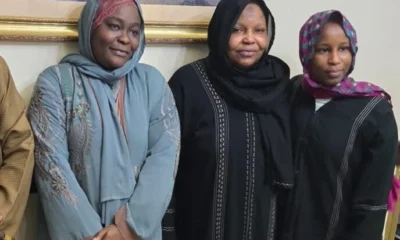
 BIG STORY3 days ago
BIG STORY3 days ago




